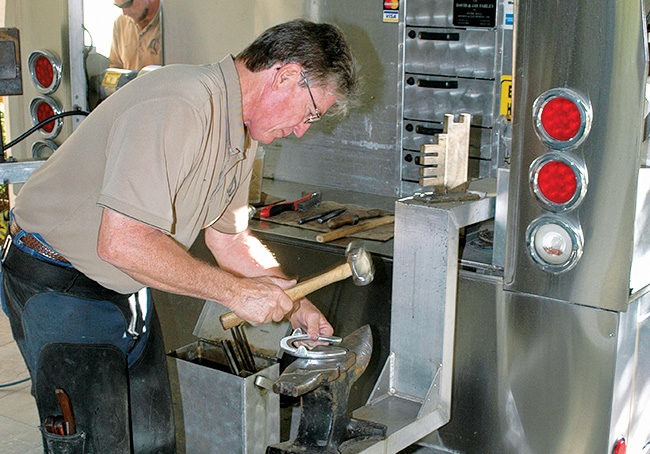While many farriers are experiencing little negative effects in the wake of the COVID-19 pandemic, there is a segment that have hoof-care clients who are missing payments more so than usual. During times such as these, it’s best to be proactive with your clients.
Communication is the best thing that a farrier can do, says Dave Farley, a member of the International Horseshoeing Hall of Fame. He suggests reaching out to your clients and establish terms and a payment plan.
“This pandemic is a crisis and it has created a lot of issues for all of the disciplines in the equine industry,” Farley says during a recent American Farriers Journal Podcast, presented by Pennwoods Equine. “It’s time to call your clients. I don’t think you should rely on texts or emails at this point. If there’s already an issue and they’re a little late on their money, call them and say, ‘I’m here to help you. I understand you are in a tough position, but I also need my income. How can we work this out?’”
Continue Reading Below
You May Also Be Interested In ...
Protect Yourself and Your Clients from the Coronavirus
In the midst of the COVID-19 global pandemic, farriers are less likely to be exposed to the coronavirus in your day-to-day work than most workers. Yet, that doesn’t mean you won’t be exposed to it. Read now »
COVID-19: Caring for Your Horse During a Pandemic
Although there is no evidence that horses can become sick with COVID-19 coronavirus, their human caretakers remain at risk. Horse owners should have plans in place to provide care for their animals if they become sick and self-isolate or become hospitalized. This free report empowers your hoof-care clients to safely manage their horses during a pandemic. Download now »
4 Steps to Grow Your Farrier Business
Fort Lauderdale, Fla., farrier Wes Meyer improved his hoof-care practice after Dave Farley suggested that he changed his prices, payment methods and shoeing cycles. Read now »
The Coshocton, Ohio, and Wellington, Fla., farrier strictly receives credit card payments from his clients. If his hoof-care practice does not have credit card information that day, the horses are not trimmed and shod.
“That’s tough,” Farley says. “I know it’s hard for some farriers to do that, but it’s solved all of my cash flow problems when we went to strictly credit cards. If you’re not doing that, there has to be terms. You have to let them know that there has to be a check or cash at the barn. Everyone has a credit card. If they can’t pay it all, ask them if they can have at least 60%, 70%, 80% paid before I come back? We can adjust it at that time. There has to be some payment received. Otherwise, we’re working for free.”
Gain more business insight from Dave Farley by watching the “Live Q&A: Business Advice During COVID-19” webinar, or listen to the American Farriers Journal Podcast, brought to you by Pennwoods Equine.








